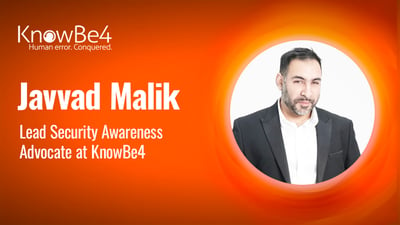 The BBC recently reported that Booking.com is warning that AI is driving an explosion in travel scams. Up to 900% in their estimation - making it abundantly clear that while AI can be a force for good, it can also be a formidable weapon in the arsenal of cybercriminals.
The BBC recently reported that Booking.com is warning that AI is driving an explosion in travel scams. Up to 900% in their estimation - making it abundantly clear that while AI can be a force for good, it can also be a formidable weapon in the arsenal of cybercriminals.
One of the most concerning trends we've observed is the increasing use of AI by cybercriminals to carry out sophisticated phishing attacks.
By leveraging the power of natural language processing and machine learning, these malicious actors can craft highly personalised and convincing emails, text messages, and social media posts that are designed to trick even the most vigilant individuals into divulging sensitive information or clicking on malicious links.
The consequences of falling victim to such AI-driven phishing scams can be devastating, ranging from financial losses and identity theft to the compromise of entire corporate networks. As these attacks become more prevalent and harder to detect, it's crucial that we, as a society, prioritise cybersecurity awareness and education.
Gone are the days when cybersecurity was solely the concern of IT professionals and security experts. In today's interconnected world, where our personal and professional lives are increasingly intertwined with technology, cybersecurity is everyone's responsibility. From the boardroom to the front lines, from the classroom to the living room, we all have a role to play in safeguarding our digital lives and the sensitive information we hold dear.
For individuals, this means staying informed about the latest cybersecurity threats and best practices, such as using strong and unique passwords, enabling two-factor authentication, and being cautious about the information we share online. It also means being proactive in educating ourselves and our loved ones about the dangers of phishing scams and other social engineering tactics, and learning how to spot and report suspicious activity.
But the onus isn't just on individuals. Organisations, too, have a critical role to play in building a strong culture of cybersecurity. This starts with leadership setting the tone from the top, prioritising cybersecurity as a strategic imperative and allocating the necessary resources to support ongoing training, awareness, and technical controls.
It also means fostering a culture of transparency and accountability, where employees feel empowered to report potential security incidents without fear of retribution, and where the organisation as a whole is committed to learning from past mistakes and continuously improving its cybersecurity posture.
Crucially, building a strong cybersecurity culture requires a fundamental shift in mindset from one of compliance to one of proactive risk management. It's not enough to simply tick the boxes and hope for the best; organisations must actively seek out and address potential vulnerabilities, stay abreast of emerging threats, and be prepared to respond swiftly and effectively when breaches occur.
The rise of AI-powered cybercrime is a reminder that the threat landscape is constantly evolving, and that we must evolve with it. By prioritising cybersecurity awareness and education, and by building a strong culture of security within our organisations and communities, we can harness the power of AI for good while mitigating the risks posed by those who would use it for harm.
It won't be easy, and there will undoubtedly be challenges along the way. But if we work together, with a shared commitment to protecting our digital lives and the sensitive information we hold dear, I believe we can build a safer, more secure future – one in which the benefits of AI are realised while the threats are effectively managed.
In the end, cybersecurity is not just about technology; it's about people. It's about empowering individuals and organisations to take control of their digital destinies, to make informed decisions about the risks they face, and to work together to build a more resilient and secure world.
 Here's how it works:
Here's how it works:




